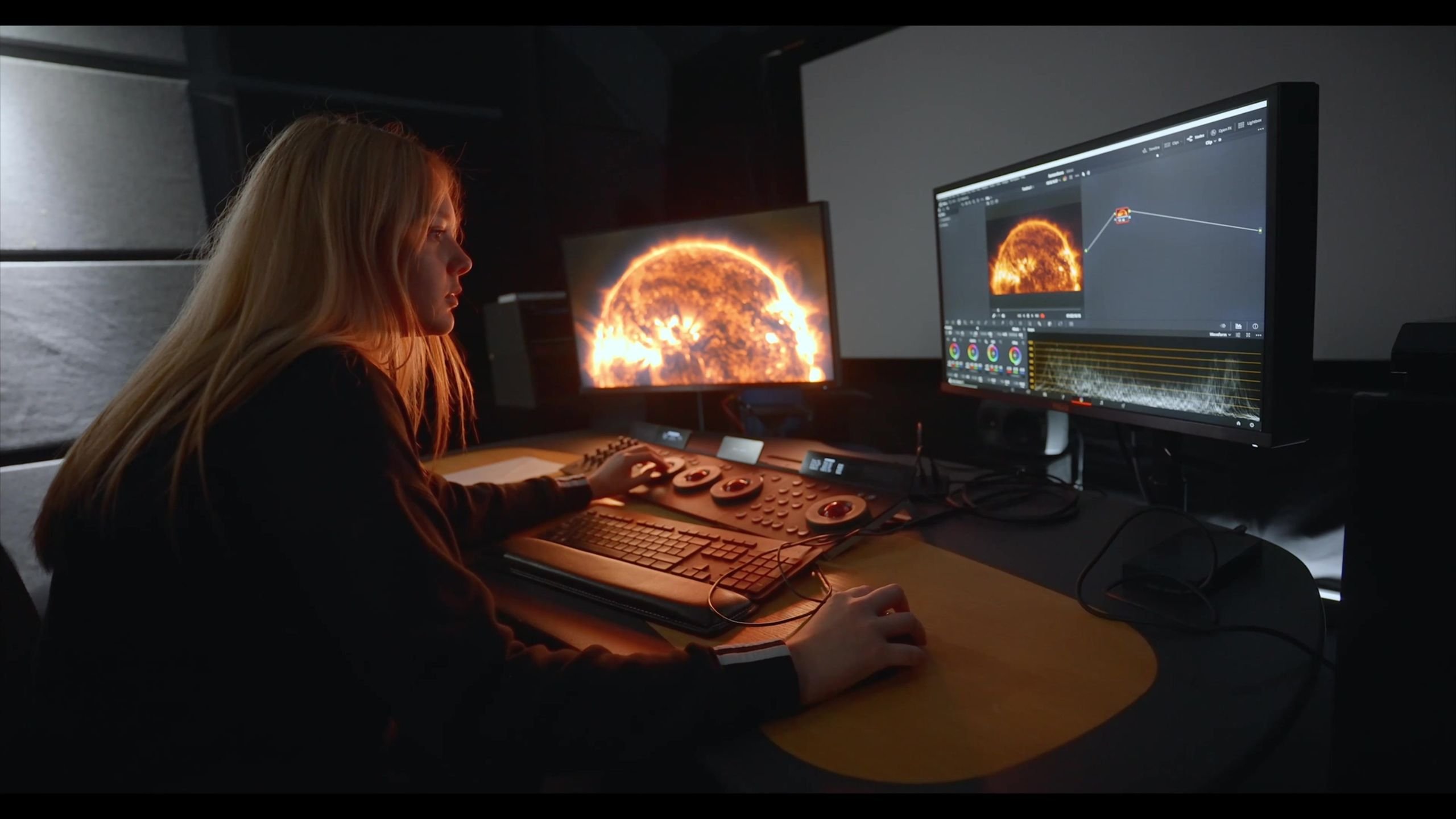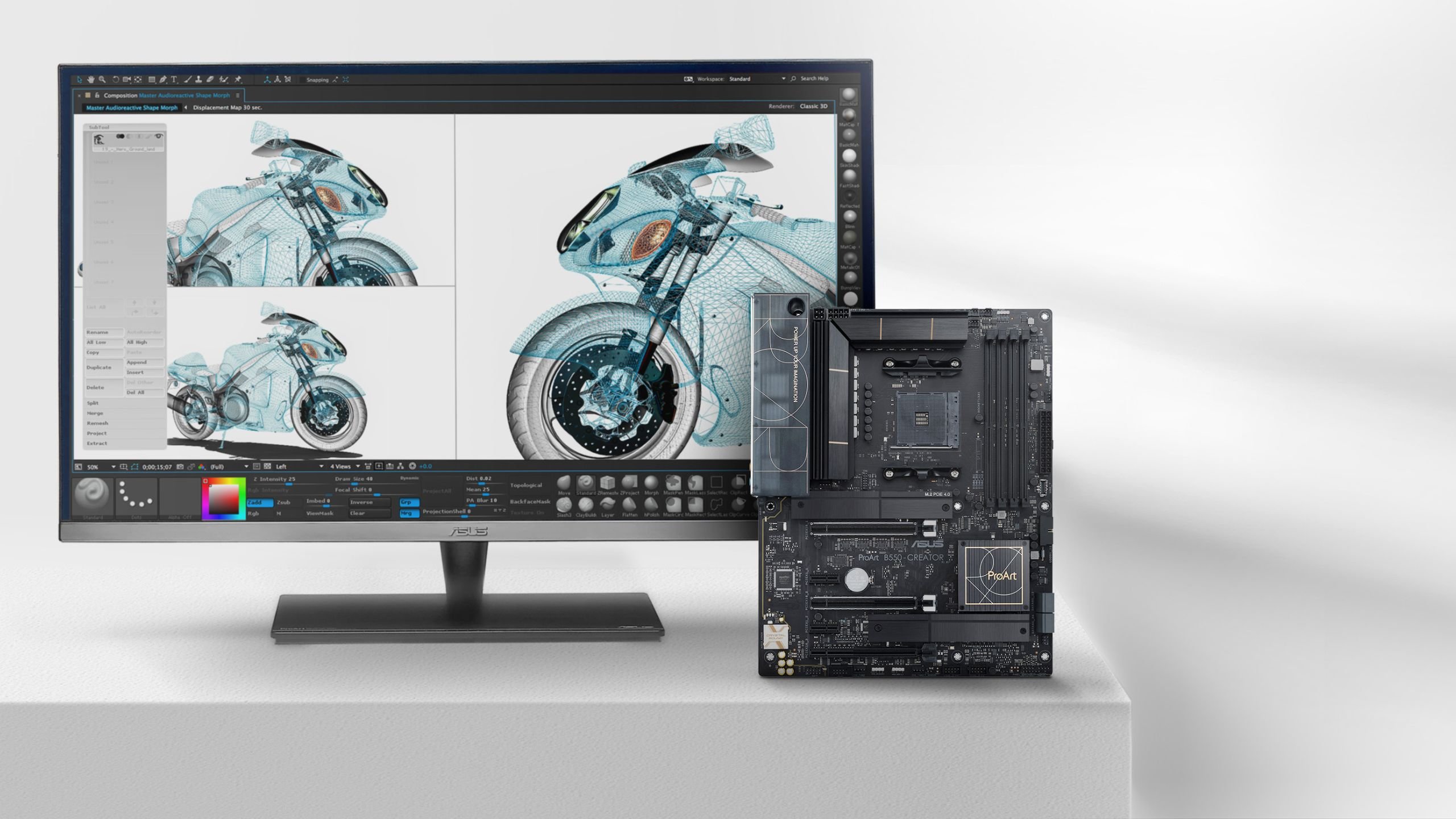In an exclusive RedShark interview, Taiwanese technology manufacturer ASUS shared an overview of their professional ProArt product range’s sales performance for the financial year 2021.
We don’t usually get to report on sales/performance data of a manufacturer but this is a unique opportunity to look at how areas like remote work have affected the professional video and design industries. The transition to remote, affordable solutions is a trend that we have long suspected to provide growth for new, emerging areas of the industry but hearing the numbers directly from ASUS has provided us with clear data firsthand on how widespread the adaptation has been.
Market position
RedShark co-founder and former Editor (and weekly columnist) Dave Shapton was the perfect person to interview ASUS GM of Display Business Unit, ASUS Corporate Vice President, ProArt Committee Chairman, Vincent Chiou. In the interview, Dave and Vincent go into great detail on the key market drivers of 2021 and how ASUS is positioned for next-generation technology opportunities like the Metaverse. We are sharing the video shortly but I wanted to take some time to share some highlights that may offer a unique insight into how creators like yourselves have changed your buying and working habits in the past few years. We have a certain level of understanding here, we’ve recently visited major UK universities like Bournemouth, MetFilm, and the National Film and Television School, who have shared with us the success they are having with products like the ProArt PA32UCG 4K HDR monitor.
ASUS may seem like relative newcomers to a segment of the industry long dominated by household names like Apple, DELL, HP, Sony, and LG, however, it released its first ProArt monitor in 2010. Vincent tells us that ProArt has been listening and working closely with creative professionals and industry partners to understand their pain points and develop products that enhance their workflow and productivity. Recently we have seen first-hand major projects with leading UK film schools/universities and industry pros using ProArt products.

Powered by ASUS
We’ve covered ASUS’s monitors here at RedShark, our Editor Simon had one for a long-term review and was extremely impressed. However, for many people, it is best known for its Motherboards. This market was particularly strong in 2021, and looking ahead to growth in virtual production and metaverse/ Unreal Engine powered projects ASUS are confident the 240% growth it saw in 2021 (vs 2020) will continue throughout 2022. We’ve recently been working with a number of UK Universities that are investing in Virtual Production technology and the ASUS ProArt motherboard powered workstations seem to be a very popular choice that backs up the sales figures shared here by ASUS. These “powered by ASUS'' programmes work across 40 countries with 500+ partners for maximum customization for a variety of user needs. We know from the comments section of any Apple new release just how much PC users like to tailor their rigs and fine-tune performance!

In the EMEA region, ProArt works with several creative professionals and education facilities as well as channel partners to serve a user base that includes broadcasters, post houses, universities, auto industry design, and architecture/ design firms with an emphasis on CAD/ 3D design. These breakthroughs have contributed to ProArt display sales increase by 170% in the EMEA region alone in 2021 (vs 2020, itself a good year due to more people working remotely). That is a phenomenal number however you look at it.
For the ASUS group as a whole partnerships will continue to be a key focus this year and beyond. Working with partner NVidia on their Omniverse platform and also collaborating with Adobe to build hardware with Adobe creative software in mind (case in point - the ASUS dial on its Studiobooks) has helped them increase overall revenue to $19bn in 2021 from $13bn in 2020. Several product lines are dominating the market; motherboard and graphics cards, laptops, gaming displays, and in particular portable displays becoming the number 1 choice for creators according to Vincent.
These numbers are interesting not just from an ASUS point of view, but also to provide an insight into the working habits of people like you - RedShark readers that are video professionals. We all work remotely here, with team members in the UK, Amsterdam, and Philadelphia right now. We use software like Frame.io to collaborate on video projects, and Google docs for written projects. Cameras are amazing value right now and there are millennia of amazing online tutorials available for anyone that wants to create the sort of still or moving images that would have seemed impossible to even the most talented creators only a decade ago. Remote workers and mobile creators need display equipment that hits the key criteria for a pro (high resolution, great colour accuracy, high refresh rate, great IO, quality build, and not going to break the bank) and weapons-grade computing power configured for their skillset. Thunderbolt 4 with bunches of M.2 slots provides superfast data transfer, dual ethernet for internet and studio intranet simultaneously (cool feature), and multiple USB ports and expansion slots for graphics/ capture cards again show the emphasis ASUS has on modularity.
We are going to see more of this, RedShark has long been a proponent of Moore’s Law, better equipment that does more for a price point that (especially in 2022’s world of climbing prices) is justifiable for a professional will be a trend that continues.